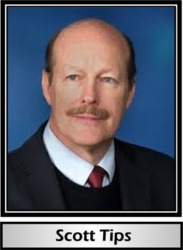“You will never understand bureaucracies until you understand that for bureaucrats procedure is everything and outcomes are nothing.” – Thomas Sowell
Natural health was dealt another series of blows during the week of July 16-22, 2017, in Geneva, Switzerland, at the Codex Alimentarius Commission meeting held in that summer-hot city. There, the Commission decided to accept the miserably low daily levels for vitamin D and vitamin E that the Codex Nutrition committee had proposed to its parent body, the Commission. There, the Commission decided that glyphosate and many other pesticides posed no threat to human, animal or insect health. There, the Commission lost its way, clearly caving in to industry interests and abandoning its integrity and the values upon which it was founded.
Remember, the Codex Alimentarius Commission is a worldwide body that since 1963 has been setting food standards for international and, in many cases, domestic trade. Part of Codex’s strategic goals is for its food standards to be applied within every member country’s borders. The National Health Federation (NHF), a Codex accredited INGO, actively participates in Codex meetings by its persistently vocal insistence on decisions that will create optimal health and health freedom.
Setting the Tone for the MeetingThe very first day of the Commission meeting most of the important issues were discussed. The NHF supported the European Union when it objected to a Lasalocid sodium Maximum Residue Level (MRL) being set for this antibacterial agent given to animals in their feed. Once an MRL is set, then the substance can be freely sold across international borders; but in this case, as the EU delegate argued, there is no way to set an “acute reference dose” and therefore we cannot know if the substance is safe for consumers. The EU and NHF were joined in opposition by Norway, Russia, Switzerland, Turkey and Cuba. Despite this significant opposition, the outgoing Chairwoman Awilo Pernet ruled that the MRL was adopted, much to the delight of the animal-drug industry.
Vitamins D and E MassacredAs you will recall, last December, the Codex Nutrition Committee decided that 5-15 micrograms (200-600 IUs) /day of vitamin D and 9 milligrams (13.5 IUs)/day of vitamin E are all that humanity needs. (See my article “Codex Lazy Monkeys,” athttps://www.thenhf.com/resources/news-releases/4499-codex-lazy-monkeys) This was a health-destroying decision that completely ignored modern nutritional science.
So, as the parent body for all its committees, the Codex Alimentarius Commission had to either adopt or reject the Nutrition Committee’s recommended daily levels for the two vitamins. It was a last chance for NHF to stop the enshrinement of bad health. During the discussion about these daily Nutrient Reference Values (NRVs) for vitamin D and vitamin E, the majority of delegates—perhaps afraid to take a position or not even caring—sat silent, thereby agreeing by such silence that the World’s population does not need adequate blood levels of either vitamin D or vitamin E.
On vitamin D, only NHF, the Council for Responsible Nutrition (CRN), and the Conseil Européen de l’industrie Chimique (CEFIC), spoke up strongly for higher NRVs. Every single country delegation remained silent, even those, such as Chile, that had argued for higher levels at the Committee level eight months earlier. The Commission quickly rolled over these three INGOs’ objections and adopted the unhealthy vitamin-D NRV.
It took longer to debate the miserly vitamin-E NRV of 9 milligrams (or 13.5 IUs), and what isomer form of vitamin E to recognize. More recent nutritional science has shown that vitamin E is actually a complex consisting of the alpha, beta, delta, and gamma tocopherols as well as four tocotrienols, eight components in all. Yet, Codex only recognizes one; and despite Malaysia’s valiant efforts (supported by China and Indonesia) to convince the Commission otherwise, the Chairwoman decided to anchor Codex science very firmly in the 1960s. Malaysia even politely asked that the Commission add a footnote to the standard, which would state that the science will be reviewed again in two years; but that was declined for procedural reasons, so protocol and outdated science won.
When the discussion shifted to the 9-milligram NRV for vitamin E, the Malaysian, Chinese, and Indonesian delegations had already weighed in with their support for a higher NRV while arguing the isomer issue. So, it was left to NHF to intervene in as powerful an argument as possible.
When given the floor, I demanded to know, “Why are we lowering the level of Vitamin E from 15 mg and 12 mg down to 9 mg? The science already exists. We do not have to wait for it. And we know that the science won’t be reviewed in two years or even five years. A recent study from 2015 showed that using a blood level of 30 micromols/liter, 87% of persons 20-30 years old and 43% of those 51 years old and older had inadequate vitamin-E levels. And that was in the United States with its 15 mg daily level! This new standard is a joke. The science is here, now. Are we so lazy that we cannot consider existing science? Instead, we kick the can down the road. So, how many people will die of heart disease or die early because of this decision today? This will be a stain on Codex.”
Despite the established fact that 9 milligrams per day is a child’s dose, at best, and despite the Codex Secretariat office’s admission that “Scott crushed it on NRV-Rs for vitamin E!!...a stain on Codex…,” the hearts of stone stayed ice cold and immovable. After all, procedures had been satisfied, so who cares about the ill-health outcomes and consequences for billions of people?
The Lone Cry Against GlyphosateThen, in almost the blink of an eye, the discussion about pesticide residue levels came and went, in the last ten minutes before the meeting ended that first day. The European Union made its reservations about several pesticides (but not glyphosate), with Norway and Switzerland joining in. Everyone else was silent as the grave. Not a word.
But, NHF spoke out against glyphosate (an herbicide found in the bodies of over 90% of Westerners and even in breastmilk), incorporating all of our arguments against glyphosate and a host of other deadly pesticides that we had stated in NHF’s written submission (Conference Room Document 27). Stunningly, silence won again! No one at Codex stood for you or the planet except NHF. And, afterwards, there was no feedback whatsoever from any country or industry delegates. But NHF’s objections are in the final report, and it will provide a basis for our intensified drive to eliminate glyphosate from world trade.
For an excellent article about Monsanto and Codex, and NHF’s near-lone battle against them both, read Colin Todhunter’s “Codex Alimentarius and Monsanto’s Toxic Relations” at http://www.globalresearch.ca/codex-alimentarius-and-monsantos-toxic-relations/5600356. The infiltration of supposedly public agencies by corporate interests has only become worse over the years.
NHF SpeaksThanks to the inherent fairness of the Codex Secretariat, which does its best to create a level playing field for everyone at Codex meetings, the NHF was invited to speak on Wednesday evening to the assembled delegates as part of a small panel of trade groups and one other consumer organization the International Baby Formula Action Network (IBFAN). While IBFAN did criticize the industry-government love-fest at Codex, the five trade group representatives simply gave short presentations about their business and work.
For NHF, I gave as our presentation the speech I awoke with that same morning, perfectly written out in my head word for word from start to finish. In it, I challenged the Codex delegates to have integrity in all of its proceedings, including adhering to true science and not fake science, and not allowing government agencies to be turned into regional branch offices for corporate interests. The NHF speech can be viewed athttp://bit.ly/2wXtUOw.
A New ChairmanThis meeting saw an end to the reign of Chairwoman Awilo Pernet of Switzerland and the election of Guilherme Costa of Brazil as the new Codex Chairman. Guilherme Costa is a veterinarian by profession and works in the Secretariat of International Business Relations of the Brazilian Ministry of Agriculture, Livestock and Food Supply. With 35 years’ experience in food-safety regulation and negotiation of which 20 years has been spent at Codex, Dr. Costa is highly regarded at Codex but unlikely to support the degree of optimal health that NHF has strived for at Codex.
Procedure Over Outcome and Expediency Over IntegrityAmerican economist Thomas Sowell has probably spoken no truer words than when he in essence said that bureaucrats will follow procedures regardless of the outcome. That, too, seems to be exactly the preference of Codex delegates over the 18 years I have been attending its meetings. The procedures are everything, the health outcomes are nothing. All too often, I have heard Codex delegates utter these words or some close facsimile thereof: “We must follow Codex procedure!” And this mantra is always repeated as if necessary to uphold a crumbling edifice regardless of the insanity of the outcome.
Whether it is butchering Vitamin D and E levels or allowing glyphosate poisoning to destroy ourselves, our children, and our planet’s future, it ultimately comes down to a failure of Integrity, an inherent failure to understand that even if we perfectly follow man-made procedures step by step, the result can be chaotic, disintegrating health, as it is today. If Mary Wollstonecraft Shelley was correct when she wrote that “no man chooses evil because it is evil; he only mistakes it for happiness, the good he seeks,” then it is up to Codex delegates themselves to remove the stain on Codex by seeking the greater good through standards and guidelines that actually support rather than destroy health.ST
A graduate of the University of California at Berkeley Law School, Scott C. Tips currently
 practices internationally, emphasizing Food-and-Drug law, business law and business litigation, trade practice, and international corporate formation and management. He has been involved in the nutrition field for more than three decades and may be reached at (415) 244-1813 or by e-mail at scott@rivieramail.com.
practices internationally, emphasizing Food-and-Drug law, business law and business litigation, trade practice, and international corporate formation and management. He has been involved in the nutrition field for more than three decades and may be reached at (415) 244-1813 or by e-mail at scott@rivieramail.com.Published in WholeFoods Magazine October 2017










